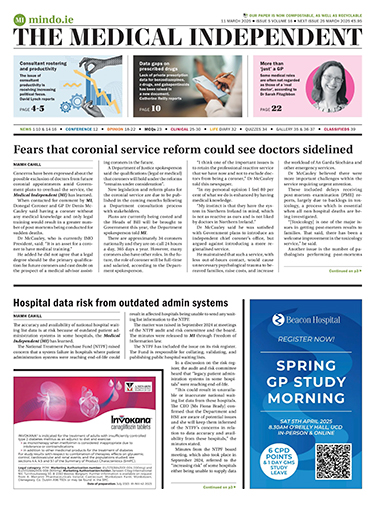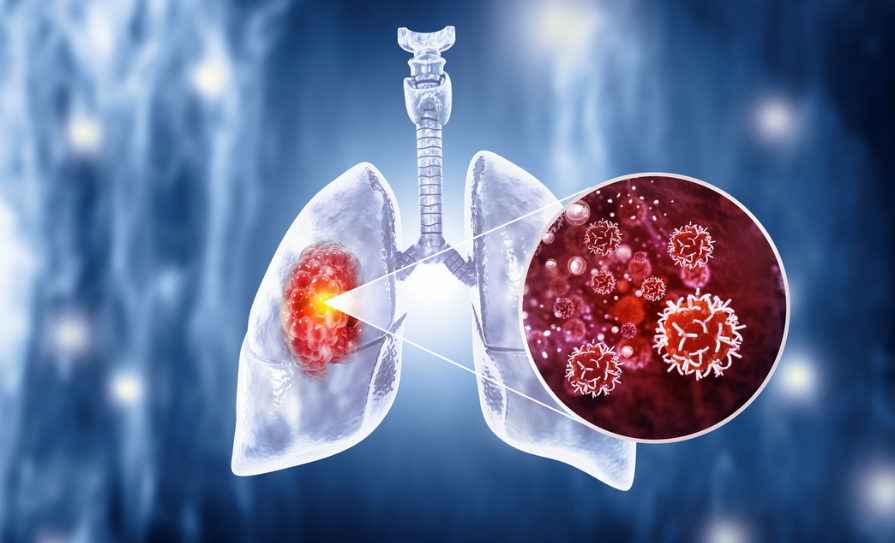NCHDs in the IMO expect to call a ballot for industrial action in the new year in response to the recruitment freeze announced recently (13 October) by the HSE.
In 2022, some 97 per cent of NCHDs voted in favour of taking industrial action, up to and including strike action, as part of a campaign to address dangerous working hours and other issues. That led to a breakthrough agreement with healthcare management which promised to address various matters.
The IMO said it believes that this agreement is now being undermined by the recruitment freeze.
The IMO’s NCHD committee stated that the ballot will be called in January if the recruitment freeze is not suspended. The matter was considered at an extraordinary national meeting of IMO NCHDs last Wednesday, where NCHDs from across the country discussed the implications of the recruitment freeze and their fear that it will lead to longer working hours for NCHDs which would be both unsafe and illegal.
According to the union: “The IMO has long campaigned to improve working conditions for NCHDs in public hospitals. In 2022 the IMO stepped up its efforts through a special campaign #standingup4NCHDs which highlighted excessive and unsafe working hours for NCHDs (with some working shifts of up to 72 hours at a time), unsafe rostering patterns, and other issues. 97 per cent of NCHDs voted in favour of industrial action up to and including strike action during that campaign.”
In December 2022, that campaign led to a breakthrough agreement between healthcare management and the IMO which promised significant improvements with much safer working conditions for NCHDs and for patients.
According to the IMO: “The key to that agreement was increased numbers of NCHDs to reduce pressures on that group of doctors and allow for legal working hours and adequate rest periods.”
Speaking today, Dr Rachel McNamara, Chair of the IMO NCHD committee, warned that the improvements in working conditions for NCHDs reached in the 2022 agreement would not be possible if the recruitment freeze continues.
“The 2022 agreement was all about reducing pressure on NCHDs and making their working lives safer for them and for their patients. That will not be possible in the context of a recruitment freeze which will prevent the HSE employing the extra NCHDs needed to tackle the huge workload facing these doctors.
“There will be a real threat to patient welfare and to the welfare of individual NCHDs as they (NCHDs) will be forced to work longer shifts, with reduced rest periods, leading to much physical and psychological hardship.”
Dr McNamara continued: “It is particularly disingenuous for the HSE to claim that its agreement brokered with the IMO last year can continue in light of this recruitment freeze. Everybody accepts that NCHDs are facing unprecedented levels of burnout and work-related stress, and this freeze is a devastating blow for those doctors who are working in unsafe conditions every day delivering care for patients. This is not sustainable and cannot be tolerated.”
The IMO has warned that implementation of a recruitment freeze would lead to:
- Dangerous conditions for patient care and the delivery of health services.
- Further pressure on NCHDs in terms of working hours and on-call commitments to cover staffing gaps.
- No guarantees on standalone non-training posts which the health service relies on to function.
- No guarantees around cover for maternity leave, sick leave, educational leave and annual leave.
- Increased delays for payment of benefits like the training support scheme and relocation expenses as administrative teams are also impacted by the recruitment ban.
- NCHDs leaving Ireland in even greater numbers for positions abroad where they will be supported, respected and provided with career pathways.













Leave a Reply
You must be logged in to post a comment.